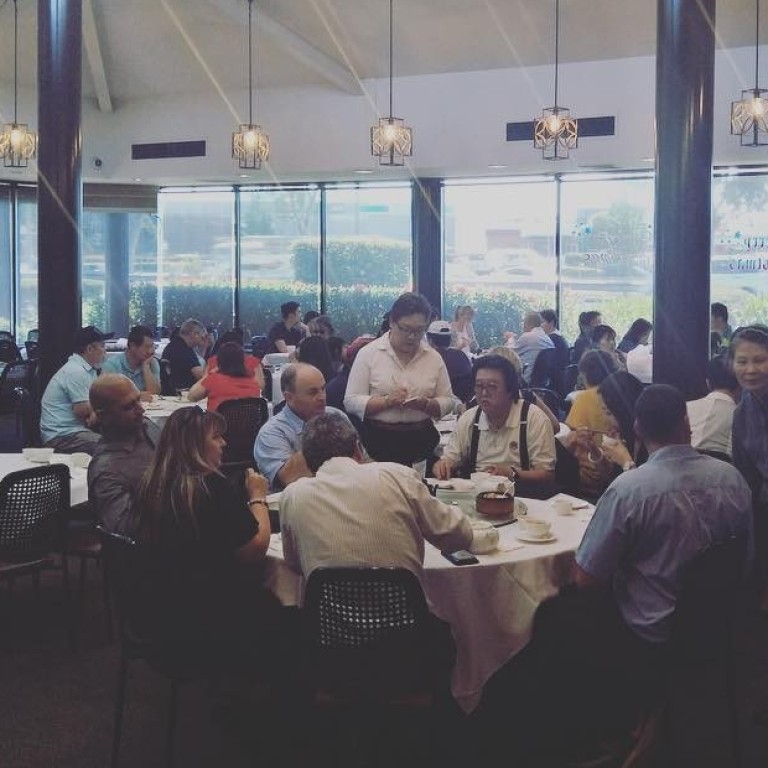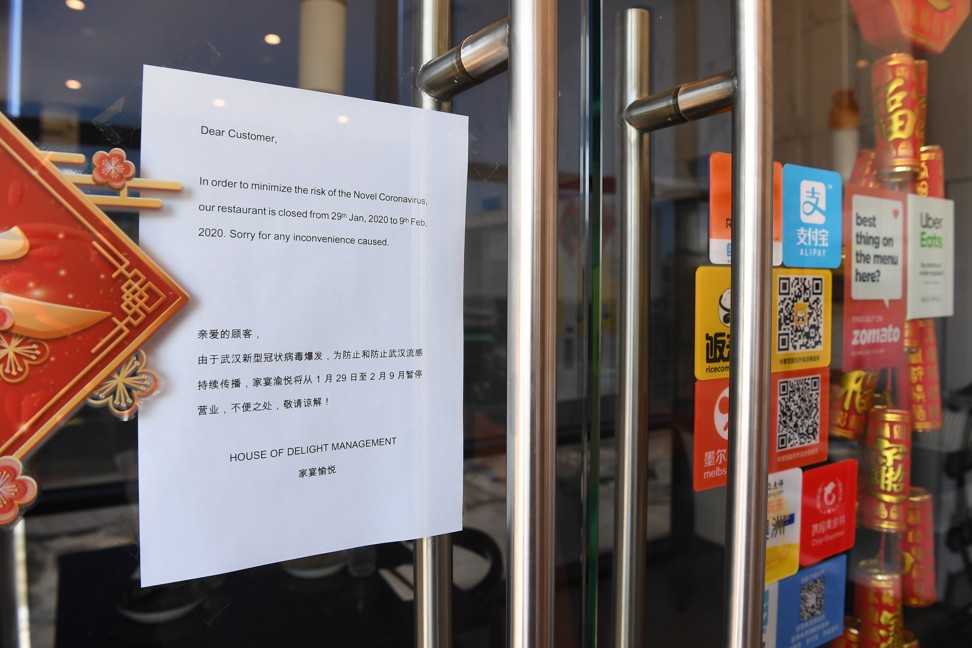
Australians avoid Chinese restaurants amid coronavirus fears, fake news
- Many establishments are facing permanent closure as customers stay away from Asian eateries
- As fears rise over the outbreak, Chinese in Australia have reported being discriminated against and abused as presumed carriers of the disease
Establishments in Melbourne and Sydney have seen a decline in trade of more than 70 per cent over the recent weeks, and the economic impact has already forced some to close, local media reported.
Shark Fin House, which opened 30 years ago in Melbourne’s Chinatown, shut its doors last week after losing 80 per cent of its customers following the outbreak of the Covid-19 disease that originated in Wuhan.
Tim Chan, the son of Shark Fin House co-owner Gabriel Chan, said his family was hopeful the restaurant could reopen soon.
We may not be killed by the virus but instead killed by the business environment.
“It’s hard to overcome the sadness with this situation, but we find comfort knowing there are so many people reaching out with supportive messages,” he told Melbourne’s The Age newspaper.
Dragon Hot Pot, which has four branches in Melbourne, said its Chinatown restaurant in particular had lost foot traffic. “Health scares are affecting local, Asian-owned businesses,” it wrote on Instagram. “We ask for your support.”
Chinese-Australians feel fear and loathing amid coronavirus panic
Richard Shi, the owner of an Asian confectionery shop in the Melbourne suburb of Box Hill, said business at his store, Sweet Kingdom, had also dropped by more than 40 per cent over the last two weeks.
“There was a lot of people around, shopping, doing their business. But now if you look around there’s basically no one here,” Shi told SBS News, adding he was trying to avoid having to close his doors early or cut staff but it was difficult.
The Gold Coast Chinese restaurant community had suffered a 50 per cent drop in business on average, said Charlie Men, who runs an eatery in Surfers Paradise, Queensland.
“My business relies on locals. Can you imagine those who are relying on Chinese tourist groups? Even worse,” Men told ABC, referring to Australia’s decision to close its borders to visitors from mainland China.
Eastern Victoria MP Harriet Shing said seeing so many Asian restaurants empty and on the brink of closure was really confronting.
“We’re asking people to visit bush fire-affected communities. It’s absolutely crucial that we enable businesses that provide the most amazing multicultural and culinary and sensory experience for Melbourne to continue to do what they do best by supporting them,” she said.
Despite the stringent quarantine measures in the country and health authorities urging the public to carry on with their lives as normal, Australians have been avoiding Asian restaurants and shops over uncorroborated coronavirus fears.
Last Wednesday, Victoria state’s chief health officer Brett Sutton released a video debunking the myths and misunderstandings surrounding the epidemic.
“Let me be perfectly clear. Spread of coronavirus occurs through close contact with an infected person, mostly face-to-face or within a household,” Sutton said in the video. “It cannot jump across a room or be carried for long distances in the air, so we should all go about our lives as normal.”
Danny Doon, the Melbourne Chinatown Precinct Association president, said: “Come out, don’t be scared. You would do it every day, don’t stop doing it.”
In Sydney’s Chinatown, even Australians of Chinese descent have stopped eating out.
Coronavirus: dim sum off the menu as Guangzhou bans eating in restaurants
Victor Tan, manager of New Chilli House, said virus fears had been spreading swiftly online, especially on Chinese-language news and messaging apps such as WeChat.
“Chinese people are reading the news in China and getting scared,” Tan told ABC. “We may not be killed by the virus but instead killed by the business environment.”
Jack Chen, manager of Good Luck Hot Pot, said things looked dire for him and his staff.
“We can only last three more weeks if business doesn’t improve,” Chen said.
Australia has recorded at least 15 cases of the coronavirus, and the government on Thursday announced that a restriction on travellers from China would extend for at least a week beyond the initial February 15 deadline. The pathogen has infected at least 60,000 people around the world and killed more than 1,300.
Amid rising public fear over the outbreak, Australians from Chinese and other Asian backgrounds have reported being shunned, discriminated against and abused as presumed carriers of the virus.
More than 1.2 million Australians – or over 5 per cent of the country’s population – have Chinese ancestry, according to the 2016 census.
Coronavirus spreads anti-Chinese racism through Asia like a disease
In New South Wales and Queensland, regional health authorities were recently forced to clarify that racially-charged messages appearing to be official alerts had been sent by unknown hoaxers.
A message purporting to come from Queensland Health had warned against travelling to suburbs in Brisbane with high numbers of Chinese residents to avoid infection, while an apparent alert from NSW Health falsely claimed that certain Asian foods carried the virus.
“The Chinese community is already suffering and stressed at being on the front line of this outbreak, and further victimising or gaslighting of the community is not fair or helpful,” Tan said.

